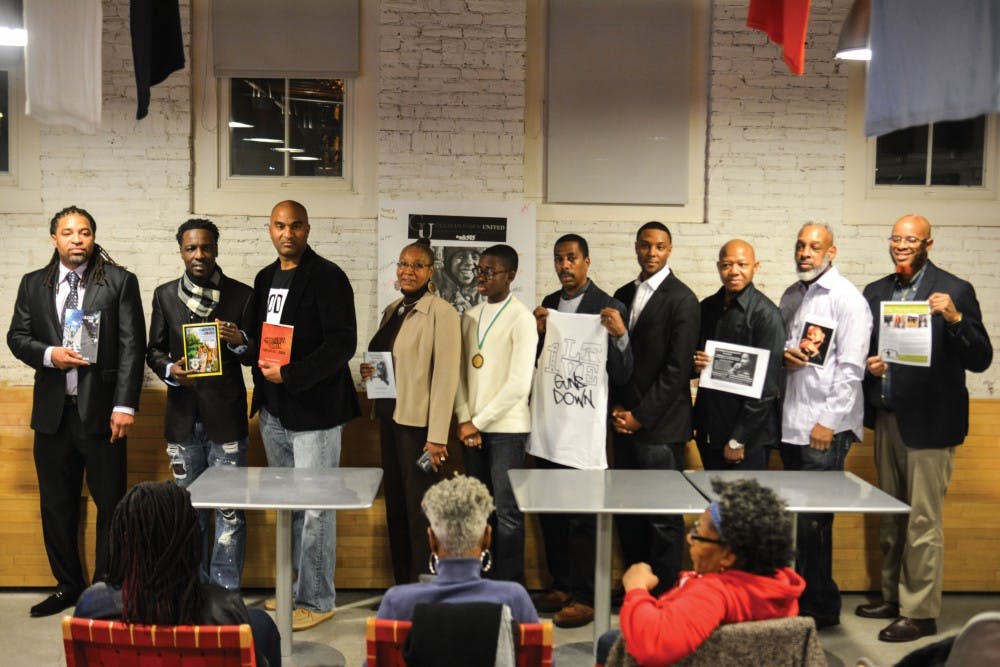Spoken word artists and community organizers filled the Goodhand Room at the LGBT Center on Sunday, reading poems about the terror of racial violence, lynching and systemic injustice.
The poetry readings marked the kick-off event, “Will Black Lives Matter during the Presidency of Donald Trump?” of the Dr. Martin Luther King Jr. Commemorative Symposium on Social Change. The symposium is a series of events from Jan. 15 to Feb. 2 on campus honoring King’s legacy.
The kickoff event hosted artists and activists from the National Black Author’s Tour. They spoke about dismantling systems of oppression, the fear many black people felt living through Jim Crow and gave their personal thoughts on how 1968 Wharton graduate Donald Trump’s presidency may affect black people.
Maurice Henderson, a fellow at the Center for Public Health Initiative, who helped facilitate and coordinate the event, gave a disclaimer that the opinions expressed during the panel did not represent the University of Pennsylvania, himself or the LGBT Center.
“The first question I had was: matter to whom?” Lois Moses, an author, filmmaker and playwright on the panel said. “I feel like this is a question that really circles around humanity. The United States of America Incorporated, as I like to call it, is defined by a group of men, the founding fathers, who were rapists, a part of a genocidal system and enslavement. It’s really a question of: Do human lives matter?”
Other panelists noted the importance of recognizing one’s worth as a black person.
“I can’t let Donald Trump or anyone else define my worth,” Duane Reid, the author of “Righteous Anger: Outcries for Justice” said. “My mere existence should be enough. Because I exist, I will be relevant regardless of those in the White House.”
Other authors and artists on the panel stressed the importance of financial literacy and local community involvement within the black community. Keith Schenck, president of the Friends of Germantown Northwest, specifically emphasized the importance of making sure black communities are doing well at the local level before moving on to the national scale.
One guest of the panel, 18-year-old Nazir Alston, also emphasized the importance of local community involvement. He has been working on a documentary about Greenwood, Tulsa — popularly known as Black Wall Street — the economically prosperous town which was burned and looted by white racists.
“[It] will help shed light on our history and what we can accomplish,” he said.









